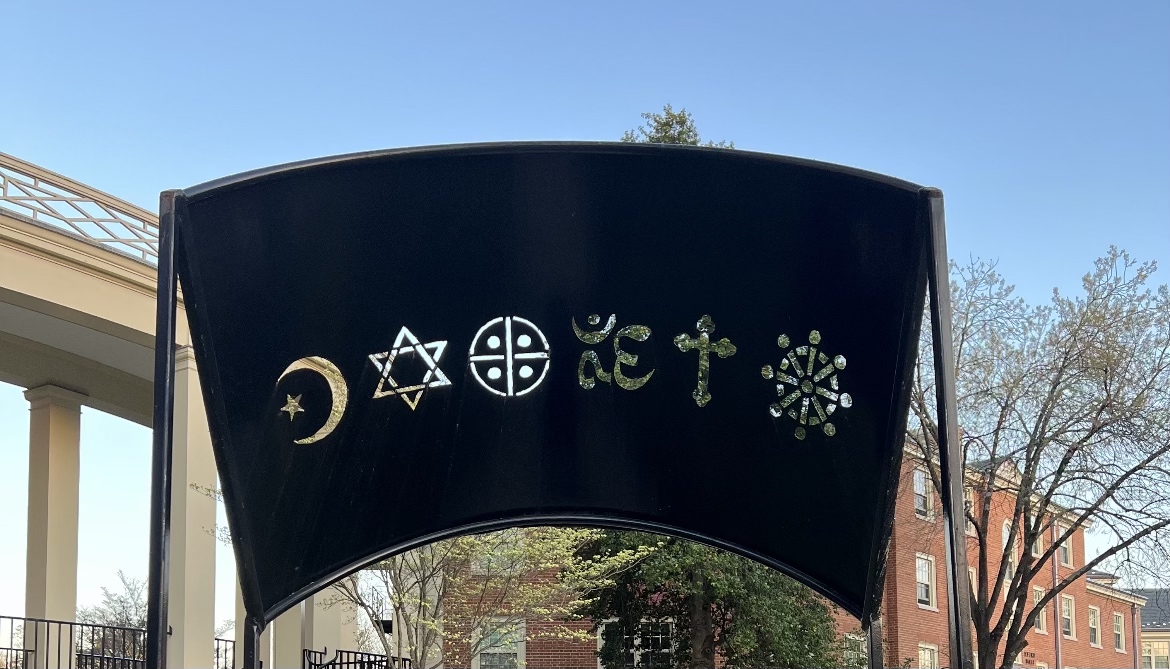From the Student Government Senator Matthew David (‘20)
“Attached below is the document of the resolution to edit the Student Code of Conduct. In the resolution itself, the language that we are adding is underlined and the wording we are eliminating is crossed out. Below is the language that would be codified if all suggestions are taken. If the administration chooses to listen to us, the code of conduct would better define and protect protest in a practical way beneficial to all students.”
RESOLUTION
Whereas Article III Section 2 of the Wake Forest Student Government Constitution states that the Senate shall “Represent the interests of students in social and academic matters;”
Whereas the First Amendment to the United States Constitution states “Congress shall make no law respecting an establishment of religion, or prohibiting the free exercise thereof; or abridging the freedom of speech, or of the press; or the right of the people peaceably to assemble, and to petition the Government for a redress of grievances;”
Whereas it is important for students to be able to express their opinions in public spaces and exercise their First Amendment right to assembly through peaceful and vocal demonstration;
Whereas the school is going through a code of conduct review;
Whereas Wake Forest University should be committed to giving students access to their most basic constitutional rights such as the First Amendment because they permit the freest possible exchange of ideas;
Whereas promoting a free exchange of ideas ensures the academic integrity of the University;
Whereas the current phrasing of the Student Code of Conduct is unfairly vague in its definitions of destruction of property, disorderly conduct, and disruptive activities;
Whereas students on all sides of the political spectrum fear their ability for political expression will be threatened by this vagueness;
Whereas under the rule of law, no rule or law that is unfairly vague can be considered fair, valid, or equally administrable;
Whereas the University should strive for a system of rules that ensures equally administrable outcomes for all students in violation of the rules through clarity and practicability;
Whereas the University has an obligation to listen to its students when they provide reasonable suggestions to the University: Now, therefore, be it
Resolved, That the Wake Forest University Code of Conduct Committee adopts the following amendments to Section 2, Subsections 11, 12, and 13 of the proposed changes to the Code of Conduct:
11. Destruction or Defacement of Property or Grounds. Conduct that Attempted or actual damages, attempts to damage, to or destruction destroys of University property or the personal property of another.
12. Disorderly Conduct. Conduct that is disorderly, lewd, or indecent; breaches the peace, which includes acts such as shouting in public spaces to incite violence or unlawful behavior; causing excessive noise in private spaces after receiving fair warning; or using excessive profanity over a long period of time in order instigate others. The library, lecture halls, auditoriums, dormitories, and classrooms are defined as private spaces.
13. Disruption or Obstruction of University Activities. Substantial disruption or obstruction of any University activity and/or other authorized non-University activities which occur on or off campus. Disruptive or obstructive actions include but are not limited to: preventing an instructor or speaker from giving a lecture, by means of repeated interruptions, chants or other verbal or audible means including but not limited to slamming on desks, doors, and chairs, and shouts inside the room of the lecture and within five yards of all entrances to the space where shouting is defined as loud, instigating, or negative, and where applause or positive shouting can be admitted until the lecturer asks for a cessation of applause; interfering with the audience’s view of an instructor or speaker if a visual component is part of the speaker’s presentation; preventing members of the university community from participating in class, hearing a lecture, or taking an examination by obstructing access to the room which they need to enter; disrupting business operations of the university; disrupting use of or access to libraries or residential housing; obstructing passage within, into, or out of buildings by physically restricting individuals from entrance or exit by pushing, refusing to move, locking arms, or putting up barricades; interfering with harassing prospective students, or employer recruitment potential employees, alumni, or invited guests where harassment is defined in part 24 of Section II of the Student Code of Conduct or university activities for alumni, parents, or other invited guests; refusing to leave a closed meeting when unauthorized to attend where a closed meeting is defined by a meeting that requires an invitation to attend; and preventing free pedestrian or vehicular movement onto or about campus. and fully restricting vehicular movement onto or about campus by refusing to move out of the way of vehicles or putting up barricades, and, be it
Further resolved, That this resolution, once ratified, will be presented to Associate Dean of Students for Student Conduct Matt Clifford in a meeting between him and members of Wake Forest University Student Government where the amendments proposed here will represent the voice of the majority of the Student Senate and the student body as a whole.










